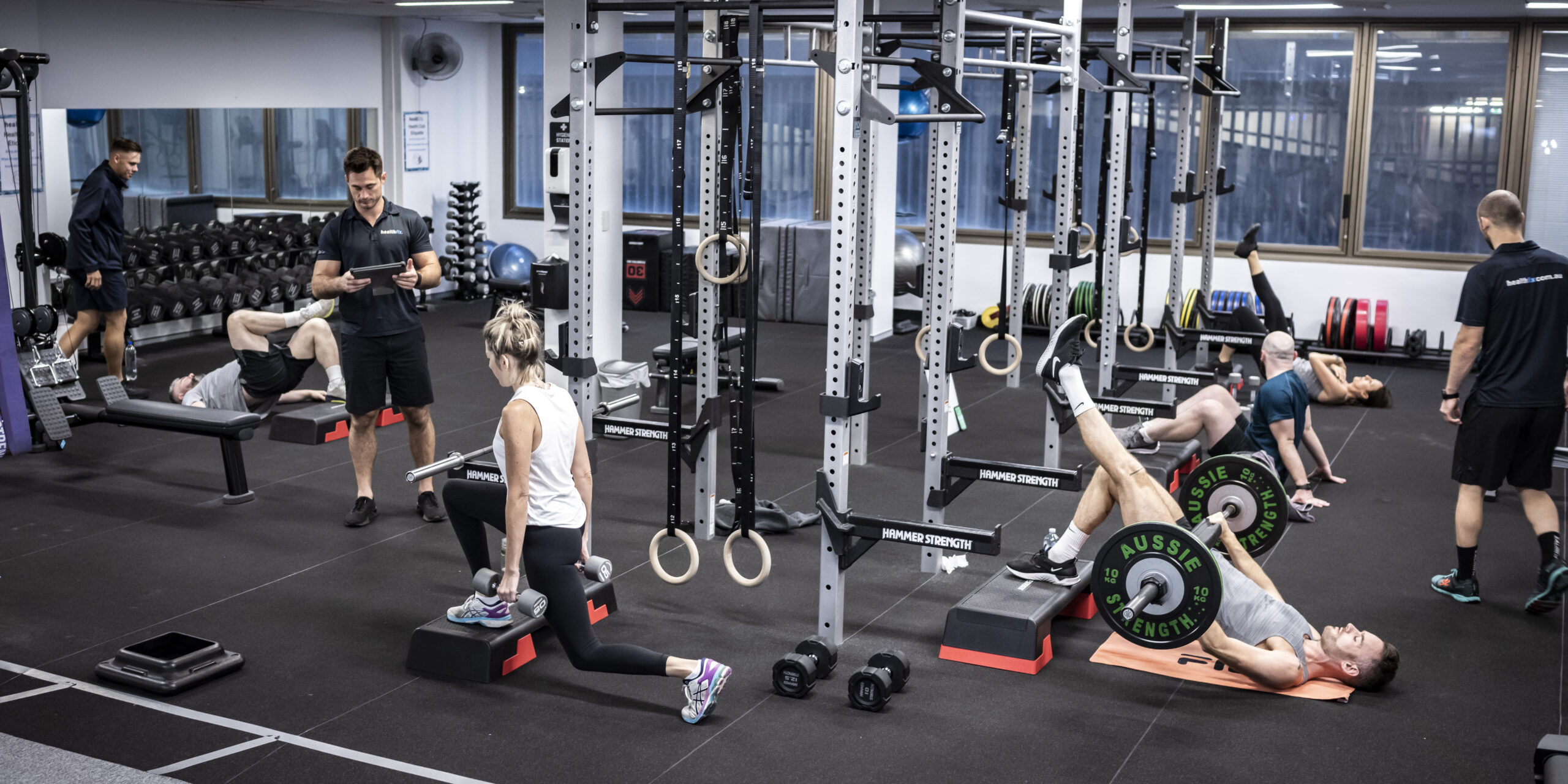
Blog

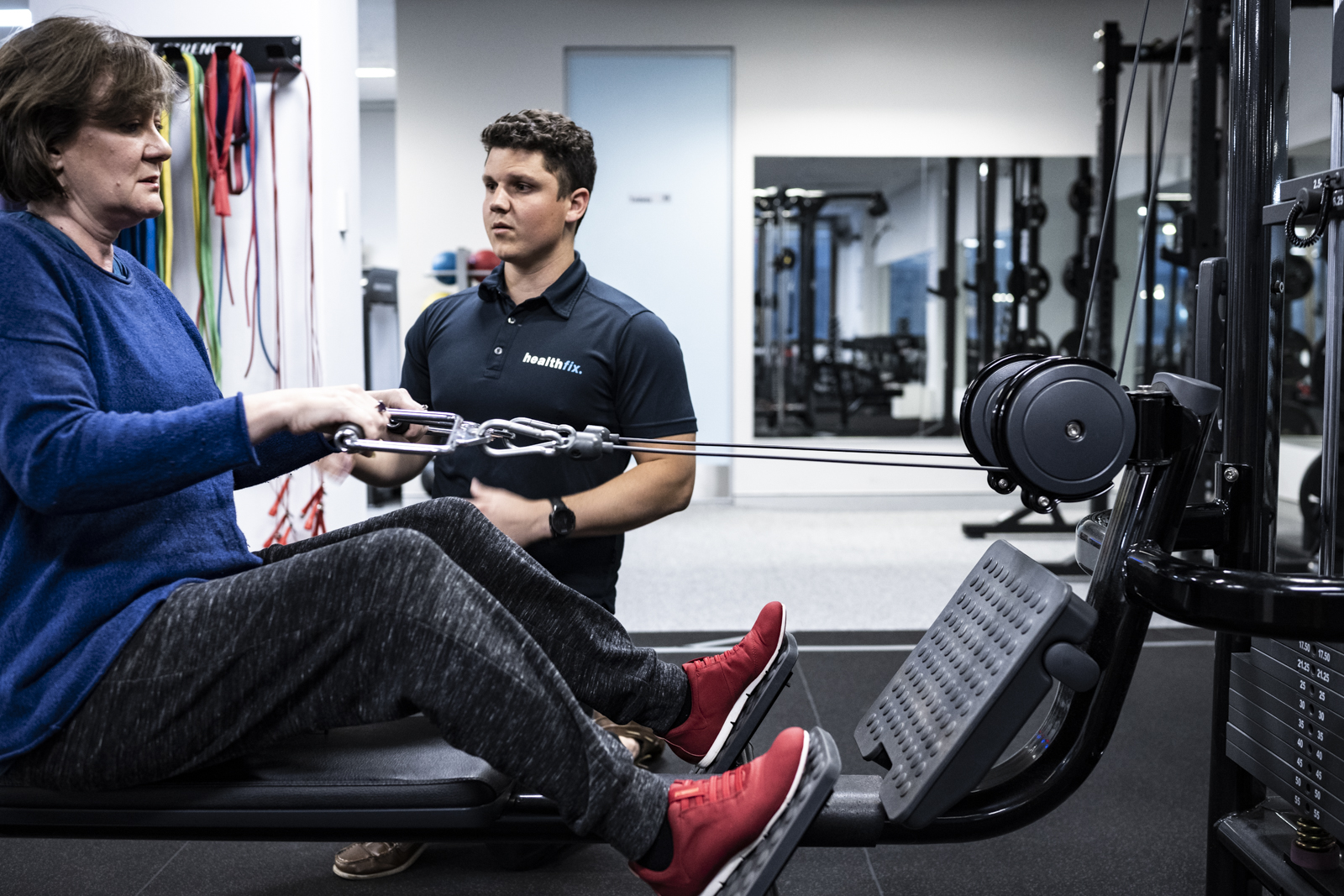
Maximising the Benefits of Exercise for People with Multiple Sclerosis in North Sydney
Maximising the Benefits of Exercise for People with Multiple Sclerosis in North Sydney
Exercise is an essential component of managing multiple sclerosis (MS), a chronic autoimmune disease that affects the central nervous system. MS can cause physical and cognitive decline, increased falls risk, and other symptoms that can negatively impact a person’s quality of life, such as:- Cognitive decline (concentration, memory, speech etc.)
- Physical decline: decreased strength and cardiovascular fitness
- Increased falls risk
- Fatigue
- Temperature sensitivity
- Depression
- Incontinence
Benefits of Exercise for People with MS
Exercise and physical activity have been shown to improve the symptoms associated with MS. Here are some of the ways exercise can help:- Improved upper and lower body strength and endurance: Performed correctly, resistance training exercise can help to maintain and improve function alongside appropriate pacing strategies. Your Exercise Physiologist can assist you to suitably structure your exercise intensity (how hard), frequency (how often), timing (how long), and type (what kind).
- Cardiovascular fitness: Cardiovascular exercise and implementation of pacing strategies can assist with symptoms of fatigue and lethargy. Your body responds to the cardiovascular stimulus by creating adaptations that, over time make the exercise easier to complete. This increase in fitness also helps to prevent cardiovascular diseases and other co-morbidities, as well as allow you to achieve more throughout the day.
- Balance: 50-60% of people living with MS will have one or more falls within the year, with balance impairing 75% of these individuals. Fear of falling and potentially hurting oneself can restrict participation in many activities- both social and personal. Including balance exercises into your routine can help to prevent falls and subsequent injuries.
What Type of Exercise is Recommended?
It’s always best to start small and find a regular exercise routine that is sustainable for life. Slowly build up to the recommendations at a pace that does not leave you too fatigued to complete your activities of daily living. Here are some exercise recommendations:- 30 minutes of moderate-intensity aerobic activity (2 days per week)
- Strength training for major muscle groups (2 days per week)
- Include balance and mobility exercises most days of the week.
Who Can Help Me?
Finding the right support is important if you feel like exercise is too challenging or daunting. An Accredited Exercise Physiologist will be able to get you exercising and moving at a safe and appropriate level. They will also educate and guide you on independent management of your condition, so that you can become empowered and self-reliant when the time is right. If you’re in North Sydney, visit us today or ask your GP about Exercise Physiology in your Multiple Sclerosis management plan to start maximising the benefits of exercise for your MS management plan. Resources:- http://exerciseismedicine.com.au/wp-content/uploads/2020/04/EIM-FactSheet_MS_Public-2020.pdf
- https://www.msaustralia.org.au/health-and-wellbeing/exercise/
- https://exerciseright.com.au/multiple-sclerosis/
- https://www.msaustralia.org.au/wp-content/uploads/2018/08/health-economic-impact-of-ms-in-australia-in-2017_ms-research-australia_web.pdf
- https://www.activeandhealthy.nsw.gov.au/preventing-falls/specific-conditions/multiple-sclerosis/
- http://exerciseismedicine.com.au/wp-content/uploads/2020/04/EIM-FactSheet_MS_Professional-2020.pdf

Unlock Your Full Potential with Physiotherapy-Led Small Group Classes in North Sydney
Unlock Your Full Potential with Physiotherapy-Led Small Group Classes in North Sydney
Are you tired of struggling to stick to your home-based physiotherapy exercises? Research shows that approximately 50% of clients don’t adhere to their home exercise program, resulting in longer recovery times and more time spent in treatment. At Healthfix, we have the solution to this problem. Our physiotherapy lead small group classes offer the perfect solution for those who want to get the most out of their home exercises. Our classes provide a supervised and supported environment, where you can receive feedback on your technique and have access to a range of equipment, such as reformers. Our classes are available before work and during lunch times, making them convenient for busy individuals. And, with health fund rebates available, you can still get the benefits of completing your exercises with the added bonus of achieving your goals. Don’t miss out on our special introductory offer available until March 1st. Take the first step towards a more comprehensive approach to your health and fitness needs and join our physiotherapy lead small group classes today!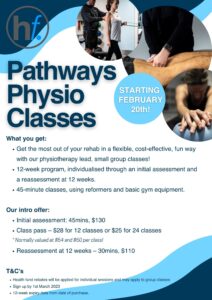
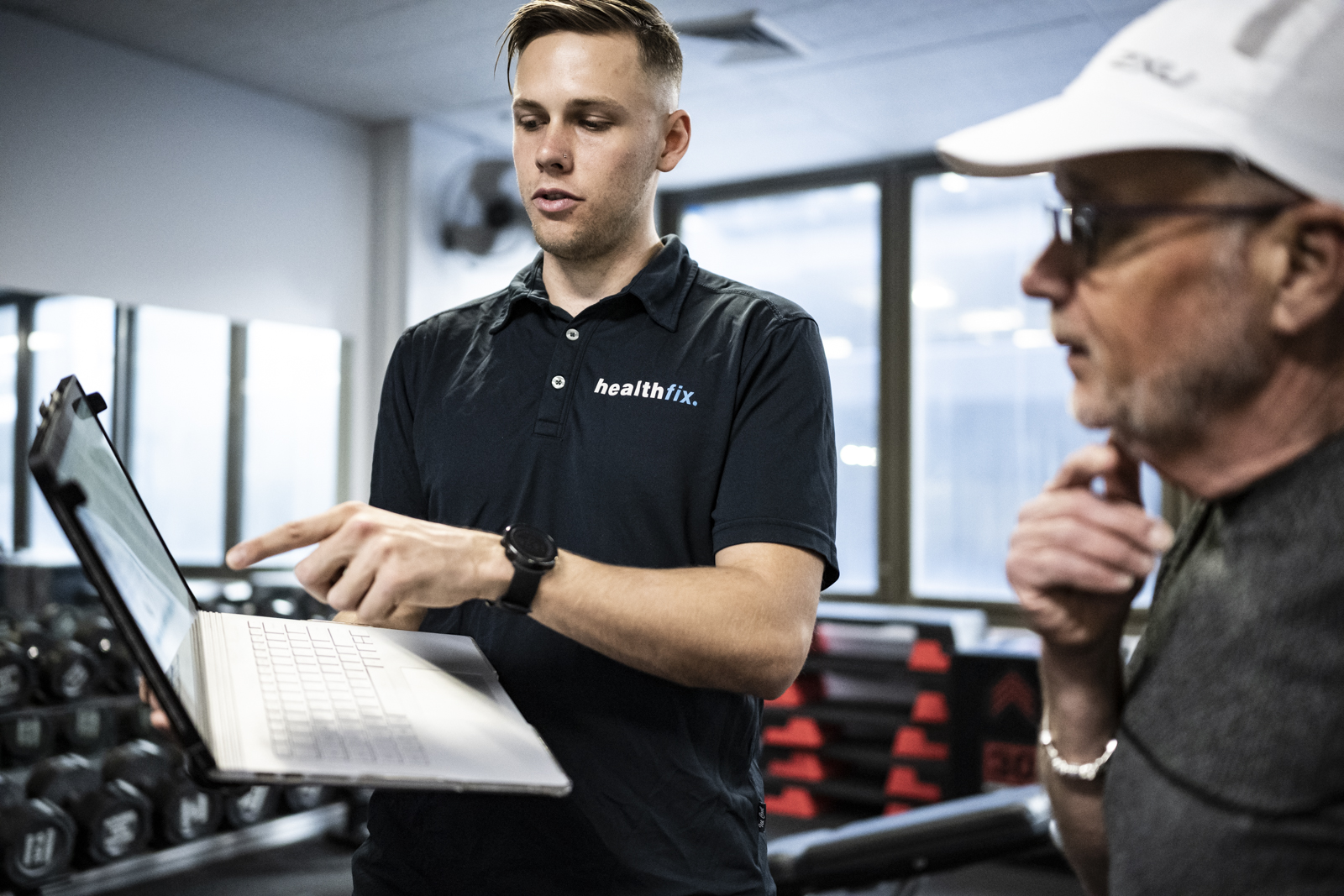
Physiotherapy injury screening – protect yourself from common injuries and get the most out of your training
Musculoskeletal Physiotherapy injury screening
To reach your health and fitness goals its as simple as being active and exercising consistently. Right? Wouldn’t it be awesome if it was just that simple! The reality is that whatever you choose to use your body for whether that be to play sport, to go to the gym or even if you are simply just living your life, from time-to-time things go wrong. With being active comes the risk of niggles, pain, stiffness which are annoying and stop you from doing what you want to be doing in the way you want to do it. Do you want to get the most out of your training and reach your goals without an injury getting in your way? Proactive healthcare is centred around thriving in life and being prepared for what lies ahead for us by using the best information possible. It means being aware of risks that you have before they become a problem. You will often hear the term evidence-based approach to reduce the risk of injury and illness – but what does this actually mean? Well, by knowing what the latest research shows and combining this with what our physiotherapists treat the most in the clinic combined with what our clients report as problems they face, we are able to create a series of tests (which we call a screen) to see if you may be at risk of having some of these issues yourself – and of course, what to do about it! What we’d like to offer you at Healthfix is the opportunity to take part in our screen that is based on literature and what we see in the clinic, so that you are protected against well know conditions.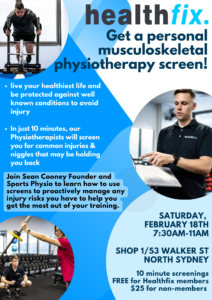 This event is included in your Healthfix membership or costs $25 for non-members. After the screen our expert Physiotherapists will present how the screen was designed, which will give you insights in what to be aware of, and how you can proactively manage your health so that you are set up to thrive in 2023 and beyond.
To find out more information or to reserve your spot now please get in touch getfixed@healthfix.com.au
This event is included in your Healthfix membership or costs $25 for non-members. After the screen our expert Physiotherapists will present how the screen was designed, which will give you insights in what to be aware of, and how you can proactively manage your health so that you are set up to thrive in 2023 and beyond.
To find out more information or to reserve your spot now please get in touch getfixed@healthfix.com.au Train for FREE in 2023! January gym membership offer for new clients in North Sydney
Train for FREE in 2023! January gym membership offer for new clients in North Sydney.
Is this your year to tackle that health issue, that niggle, that “thing” that stops you from doing and being the person you want to be? Are you ready to get started with a health journey that is flexible, fully customisable and offered in a place where you feel comfortable, supported and confident you will achieve your goals? At Healthfix we offer so much more than your usual gym membership because we know how to achieve long term results. A team of experts working for you, all your rehabilitation, exercise and dietary needs in one place, options for 1:1 or small group training, proven structured programs such as strength, weight loss or injury rehabilitation and full gym access: anything you are looking for we have you covered. Our January promotion offers unbeatable value for new clients!
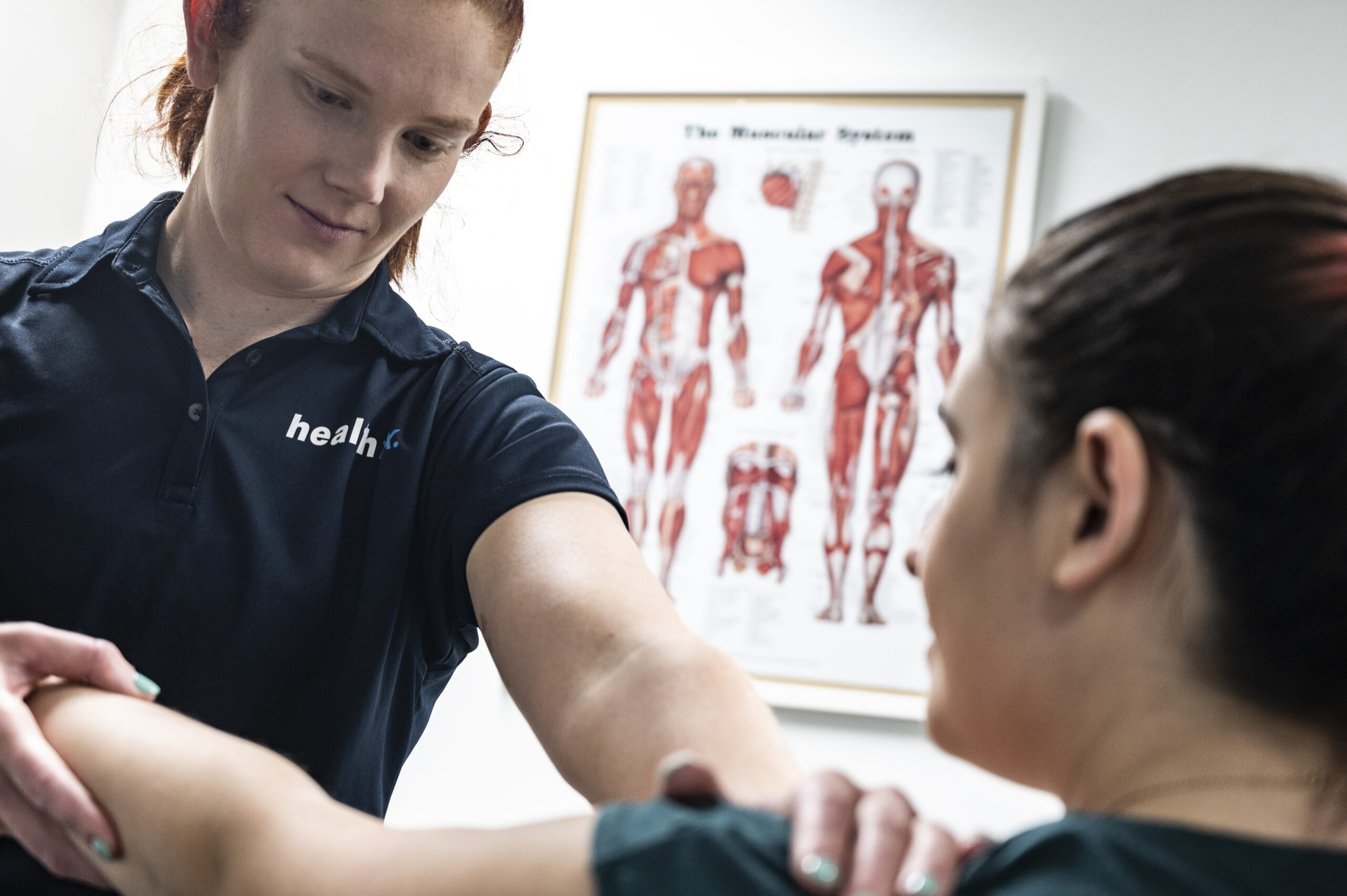
Why do you need a physiotherapy Injury Rehabilitation Program?
Why do you need a Physiotherapy Injury Rehabilitation Program?
Do you have persistent niggles, pain or problems that keep coming back and stop you doing what you want to be doing in life? Our biggest frustration is seeing client’s who do not get better from physiotherapy treatment and sadly this can occur. The most common reasons we see that physiotherapy treatment doesn’t work is due to:- Insufficient amount of treatment time
- Treatment focuses on the acute symptoms settling down and misses the baseline strength required to prevent the issue from coming back
What is involved?
- 4-week physiotherapy specific block, aimed at reducing acute symptoms and restoring any loss of range of movement
- 8-week combined block of physiotherapy and exercise physiology which is geared towards a strength goal, preparing your body for life outside of clinical care.
- The tools needed so that you know how to continue to make healthy lifestyle choices and be empowered to complete physical feats.
Your commitment
12 weeks- Physiotherapy= 20 sessions
- Exercise Physiology = 16 sessions
- Program includes full access to gym and group classes.
- Our Standard Price $3,460
- Our Members Price $2,990 including gym membership
- Health fund rebates available on all sessions
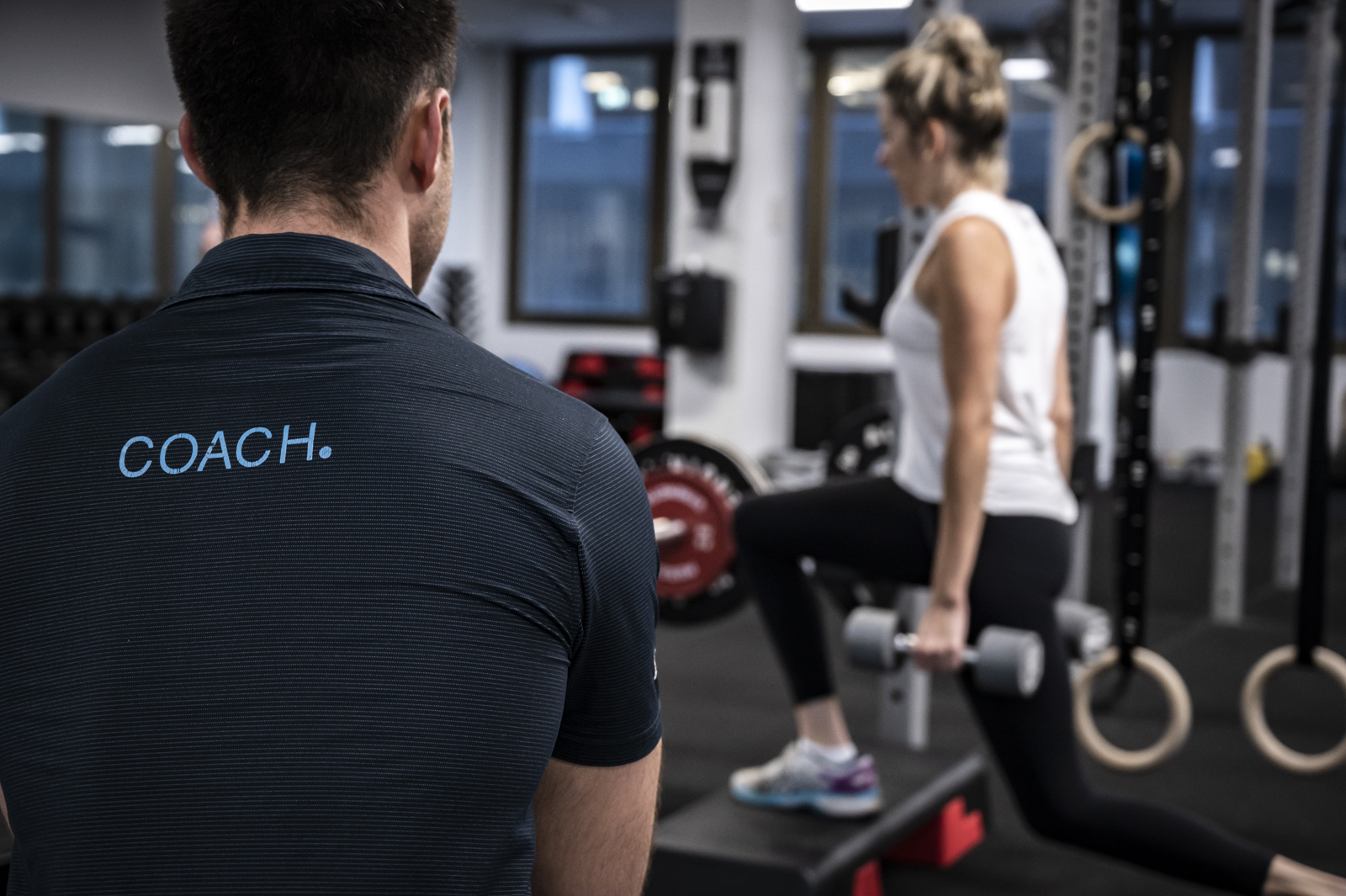
Personal Training – How to succeed with a weight loss body transformation program
How to succeed with a weight loss body transformation program
By Bladen Baird, Head Personal Training/ Strength and Conditioning Coach, Healthfix North Sydney
Why most weight loss attempts fail
Most people fail to lose weight or stagnate after short-term success because of three main reasons:- You set unrealistic goals
- You fall prey to fad diets promising quick success, and
- You use training and exercise as a punishment rather than a celebration of what your body can do.
How to achieve success with weight loss goals
In order to achieve a long term result with a body transformation program you need to understand the fundamentals of training, nutrition and behaviour change to help you reduce body fat and take control of your long-term health.- Goal setting,
- Training and exercise,
- Nutrition,
- Education,
- Behaviour change
- Accountability
- 1x 60-minute initial
- 21x 30-minute sessions
- 1x 30-minute interim membership check in to review goals 1 x 60min reassessment
- 19x Group fitness sessions
- Diet IntroFix – 1 x 60min initial plus 3 x 30min follow ups
- Full gym and group class access
Shoulder injuries how to assess, diagnose and treat: Healthfix Physiotherapy advice
Shoulder injuries how to assess, diagnose and treat: Healthfix Physiotherapy advice
By Caitlan Skillicorn, Senior Physiotherapist M. Physio & B. Ex. and Sport Sc.Your shoulder: what you need to know
- Its the most unstable joint in the body (imagine a golf ball on a tea or a beach ball on dinner plate!)
- Its the only upper body bony attachment where the sternum and clavicle meet
- The muscles and ligaments are heavily relied on for stability due to the range of movement the joint can function in. The two groups involved in shoulder activation include:
- Stabilisers – Rotator cuff (supraspinatus, infraspinatus, subscapularis and teres minor)
- Movers – Deltoid, Pectoral muscles, serratus, lats, traps
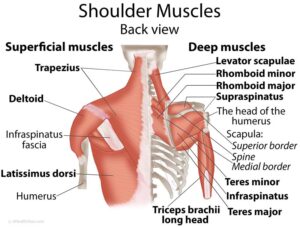
https://www.ehealthstar.com/anatomy/shoulder-muscles
How do Physiotherapist’s assess shoulder pain?
The subjective assessment will drive the objective assessment, this means that we delve into the cause of the pain first by getting a thorough history from you including:- Any history of trauma such as a fall
- If there has been a sudden increase in training loads (gym, housework, renovations etc)
- How long you have experienced pain for especially if it is low levels of pain for a long period of time
- Active range of movements and repeated movements to see if any fatigue changes the movement pattern
- Resisted movements
- Special tests and manual muscle testing using a device
How do Physiotherapist’s diagnose your shoulder complaint?
The three key areas physiotherapists use to diagnose shoulder injuries include:- Is it torn? (trauma or degenerative)
- Is it stiff? (frozen shoulder, osteoarthritis, post-operative)
- Is it irritable? (tendinopathy, bursitis etc)
When is it likely that your symptoms are not actually coming from your shoulder?
Often we find that clients symptoms are not directly related to their shoulder. The most common indications of this are if you experience:- Nerve related symptoms so things like pins and needles, numbness or burning sensation in your hands and fingers
- If experience pain specifically in the upper trapeziues muscles
- If you have restricted neck range of movement
- If these are true then it is most likely that you
If you are unsure if you need to see a Physiotherapist
The most common complaint we see in active clients who are training in the gym is impingement which means the pain is triggered at the end of the range of movement or after 90 degrees of flexion. If this is you we recommend you change the angle of your movement and reduce the weight and volume (kgs and reps) and if symptoms don’t settle within a week then your best off to see a Physiotherapist for assessment and treatment. Do you have a shoulder issue or are unsure about whether physiotherapy treatment will help your condition? To arrange to speak with one of our expert physiotherapists get in touch with us now! getfixed@healthfix.com.auHealthfix event – How to use a proactive healthcare approach to be your personal best at any age
You are invited!
Early in his career Sean identified that the health care approach of finding and focusing on problems was only leading to people feeling fear and limitations from conditions they were diagnosed with and being more reliant on therapists for maintenance care. He knew there was a better way and that involved getting people active in things they loved to do, using a team of experts with a common goal and empowering people to feel confident in both their ability and understanding of their bodies, were the solutions to achieve long term results. Then came Healthfix 11 years ago in which Sean has built the systems and quality assurance to deliver these results to client’s time after time. Sean’s approach and vision have been sought by the wider community including NSWIS and various advisory boards.
We invite you to come and spend an evening with Sean to gain an understanding of how this approach can help you with a real result despite any injury or condition you experience.
Healthfix Founder Sports titled Physiotherapist Manager Performance Health at NSW Institute of Sport UTS Physiotherapy Advisory Board Member Member of the Australian College of Physiotherapists
Topics we will cover include:- What is proactive health (health care vs sick care)
- Why proactive health achieves superior results
- Common heath conditions (including back pain, headaches, tendonitis)
- How to be your personal best at any age
We look forward to seeing you there! To reserve your spot please rsvp to getfixed@healthfix.com.au
Sports Nutrition Advice No 3. Do you need supplements to maximise your sports performance?
Can supplements help you to achieve more in your sports performance?
We finish our three part series with a look at the role of supplements and how they can support your personal best sports performance, thanks to advice from Jordan Morrison Senior Dietitian and Nutritionist at Healthfix.To Supplement or Not to Supplement?
- Need to get the 3 pillars correct first:
- Sleeping well
- Ensure your training program is effective for you
- Eating well consistently: this means that you have adequate fats, proteins and carbohydrates every day and the timing of your nutrient intake is correct (around training sessions)
-
- Whey protein
- Caffeine
- Creatine monohydrate
- Beetroot juice
Whey Protein
- Whey protein is a fast-digesting and absorbing protein (more bang for your buck)
- Examples where protein powder supplementation may be useful:
- To enhance meals that you struggle to get sufficient protein in (often breakfast!) E.g. mix through yogurt, smoothie or overnight oats to ensure 20-40g protein per meal.
- Convenience e.g. on the run after an exercise session and can’t get access to a good sit down meal
- Those wanting to gain weight
- It would not generally be recommended for those <18 years
Caffeine
- Works to reduce our perception of fatigue and increase alertness
- Examples:
- Ironman athletes would use toward back end of competition to reduce fatigue after several hours of activity
- Team and agility sports (netball, bball, AFL) having higher alertness and decision making and reduction in fatigue perception can be helpful here too.
- Resistance or HITT pre-training nutrition
- However, some people may have adverse reactions to higher doses. There are 3 types of DNA mutations individuals may have that will demonstrate different reactions (for 2/3, perform better and ⅓ actually perform worse! If you are anxious/nervous before an event or generally, or have IBS caffeine can increase these symptoms to negatively effect performance).
- Recommended dose:
- Start low and then trial from there
- ~1mg/kgBW is a good place to start and up to ~3mg/kgBW e.g. 70kg person would have 70mg caffeine = ~3/4-1 shot of coffee (depends on coffee/cafe – this varies even in the same cafe!) If you want to use this for performance as a high level athlete, you might want to look into caffeine powder or strips that are specific.
Creatine Monohydrate
- Creatine monohydrate is important for fast recovery for those who do explosive movements e.g. in gym doing set of 5 and doing another set of 5, it helps the body restore the energy for the 2nd set of 5. There is also some emerging evidence around it being beneficial for faster recovery from concussion e.g. rugby
- Food sources are mainly animal and meat products, from in the cell of the muscle
- Vegan and vegetarian athletes are recommended to supplement
- If you do supplement, there can be a little bit of wt gain initially (0.5-1kg) as it is stored with water (water weight!)
- Recommended dose:
- 3-5mg every day with a meal e.g. have a scoop with breakfast or dinner
- Doesn’t have to be in a pre or post workout shake
- Most important thing is being consistent every single day for it to be effective
- No CM cycling research so far but they believe it’s safe to have every day for years at a time. You might find in off season you want to have a break from supplements
Beetroot Juice
- Nitrates in beets help our cardiovascular system through improving the health of the arteries. It helps people exercise in long aerobic durations more efficiently e.g. >80 minutes.
- You can use natural sources of dietary nitrates e.g. rocket, spinach, beetroot. If you are eating these foods daily/regularly, you don’t necessarily need to supplement.
